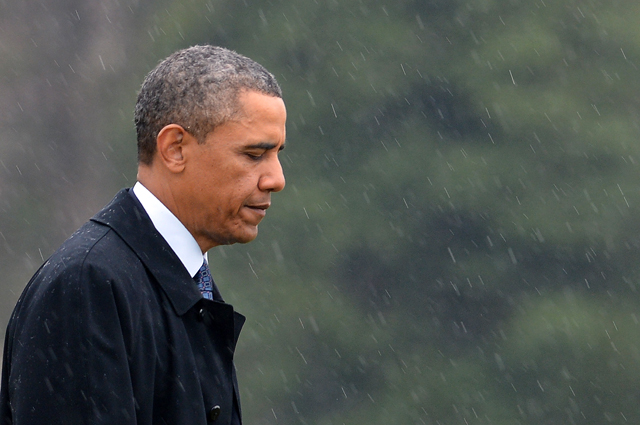Middle East Not So Happy with Obama
Helle Dale /
Under President Obama’s leadership, U.S. influence among Middle East nations has waned, and in fact declined since President Bush left office.
During last week’s visit to Ramallah, Palestine, Obama was the object of demonstrations by irate Palestinians. They are not alone in their anger over neglect and unfulfilled presidential promises, as Princeton graduate and Fulbright scholar Sarah Mousa wrote following Obama’s Middle East trip:
Throughout the region, people celebrated Obama as a potentially revolutionary force via US policy in the Arab world. They were quick to be disappointed, however, as they came to realize the emptiness of the president’s rhetoric, especially regarding Palestine, among the most important issues for many throughout the region.
As a consequence, Mousa writes, Arabs regard the U.S. as “increasingly irrelevant.”
Several factors are at play here:
- Obama raised expectations in his 2009 Cairo speech, in which he promised to put relations with the Arab world at the center of U.S. foreign policy. “I have come here to seek a new beginning between the United States and Muslims around the world,” the President said at the time—and proceeded to do very little about it.
The Obama Administration badly bungled U.S. policy on the Arab uprisings, a historic opportunity to advance free societies. The U.S. repose was confused, contradictory, and reactive. As a result, the Muslim Brotherhood and other fundamentalists moved in to fill the power vacuum.
To quote Mousa again, “The Arab uprisings transformed many peoples’ views on the role played by the U.S. in their region. While Obama and Secretary of State Hillary Clinton did offer verbal support to most of the protest movements, hypocritical selective support, initial American hesitation in backing the uprisings and past policies bolstering dictatorships were not forgotten.”
- The withdrawal from Iraq was mismanaged, as Vice President Joe Biden failed to negotiate the Status of Forces Agreement that would have allowed the U.S. some form of continued military presence. Indifference to Iraq’s future is the message currently coming out of Washington. “No one thinks America has influence now in Iraq,” Deputy Prime Minister Saleh al-Mutlak told The Washington Post.
- There was an absence of response by the U.S. government to the killings of four Americans, including U.S. Ambassador to Libya Christopher Stevens, on September 11, 2012, in Benghazi. This sent a message of weakness. More than six months after the terrorist attack, no retaliation has taken place and the investigation has moved forward at a snail’s pace.
- Obama’s domestic agenda is clearly the primary focus of the Administration, and foreign policy comes a distant second. This has not gone unnoticed. “America could still do a lot if they wanted to. But I think because Obama chose a line that he is taking care of interior matters rather than taking care of outside problems, that made America weak—at least in Iraq,” said al-Mutlak.
- The U.S. drone strikes against terrorist targets continue to be wildly unpopular among Arabs, a policy intensified under Obama as the focus moved to killing terrorists as opposed to capturing them for interrogation.
In order to become relevant again, the United States needs to show engagement and a sustained commitment to secular, political progress in the Middle East.

